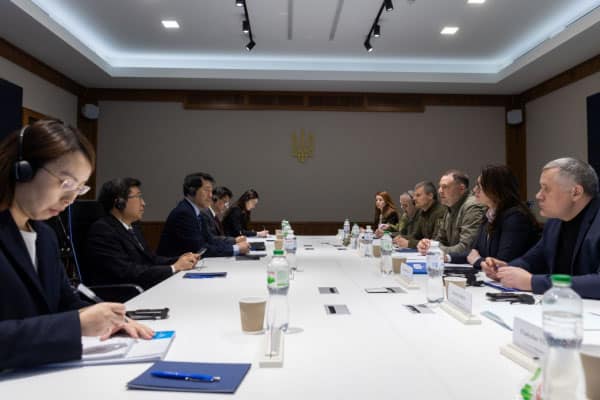By Yi Xin
On February 24, the Ukraine crisis marked its two-year anniversary. Despite the bloodshed on the battlefield and suffering of innocent lives, fighting continues with no sign of abating.
While Ukraine is bearing the brunt, its European neighbours are also living in the shadow of the crisis. The future of the continent is highly uncertain, and its security architecture is crumbling. A sense of despair was prevalent at last month’s Munich Security Conference, where the worries about a lose-lose outcome were widely shared among the participants.
Past experience tells us that a conflict, when prolonged, tends to deteriorate and escalate. Misperception and miscalculation will accumulate and may lead to an even bigger crisis. If the crisis drags on, it does no good to anyone. The sooner peace is restored, the better it is for Europe and the wider world. Sadly, what’s happening on the ground suggests otherwise.
The parties to the conflict, Russia and Ukraine, both seem to be unprepared, if not unwilling, to stop the fighting and enter into negotiations. Perhaps deep in their heart, they both bet that time is on their side, and they can still walk away with bigger gains from the battlefield.
Some outsiders see the protraction of the crisis as favourable to their interest and portray the switch to negotiations as a recognition of Russian aggression and an implicit acknowledgement of defeat. Instead of cooling the temperature, they keep fanning the flame by providing ever more advanced weapons and even venturing with the idea of sending their own troops to the battlefield.
If lessons from history could offer any guide it is that all conflicts have to end at the negotiating table. Like it or not, dialogue and negotiations are the only viable way out of the crisis. While it is encouraging to note that there have already been some positive efforts in this direction, such as the international peace conferences hosted by countries like France and Malta, yet without the participation of both Russia and Ukraine, they are more like trials in absentia that can hardly produce any meaningful result.
Earlier this month, Ambassador Li Hui, the Chinese special representative on Eurasian affairs, arrived in Moscow and Kiev for a second round of shuttle diplomacy. He held talks with senior diplomats and high-ranking officials, including Ukraine’s head of the presidential office Andriy Yermak and Russian Deputy Foreign Minister Galuzin Mikhail Yuryevich, in an attempt to bridge differences between the two countries.
Apart from Russia and Ukraine, the special representative also made stops in Brussels, Warsaw, Berlin and Paris, where he engaged with key stakeholders in Europe to explore a way forward.
Like his first trip to Europe in May 2023, the purpose of this round of shuttle diplomacy is to build consensus among the parties and pave the way for peace. It is part of China’s relentless efforts to promote a negotiated peace and a most relevant example of the principle of “peacefully resolving differences and disputes between countries through dialogue and consultation” enshrined in the Global Security Initiative proposed by China.
Contrary to accusations that China is sitting idly by or taking a biased stand on the crisis, China has all along followed an impartial and objective position and engaged with all parties concerned in its own way, all in an effort to promote a peaceful solution.
Chinese President Xi Jinping has had in-depth exchanges with world leaders and put forward four points about what must be done: that the sovereignty and territorial integrity of all countries must be respected, the purposes and principles of the UN Charter must be observed, the legitimate security concerns of all countries must be taken seriously, and all efforts conducive to a peaceful settlement of the crisis must be supported. Such a position, which is very much centred on peace, addresses the root cause of the problem and points the way forward for ending the crisis.
As a responsible major country, China will continue to play its part in promoting peace. To bring the crisis to an end sooner rather than later, all members of the international community must join the call for peace, and all efforts conducive to peace talks must be encouraged and supported. As long as there is a slightest chance of a negotiated solution, no one should give up on it. With greater number of countries waking up to this fact, the end of the Ukraine crisis would no longer be a distant dream.
The author is a current affairs commentator based in Beijing







Click here to change your cookie preferences